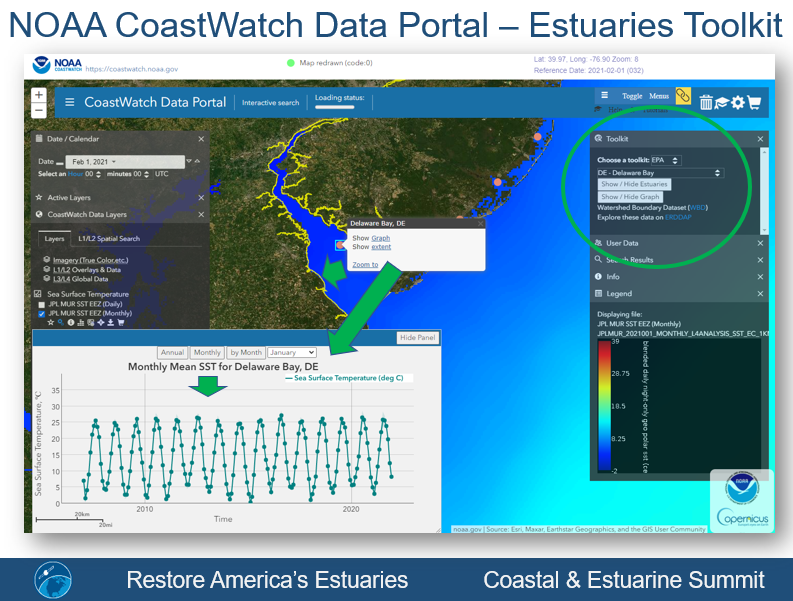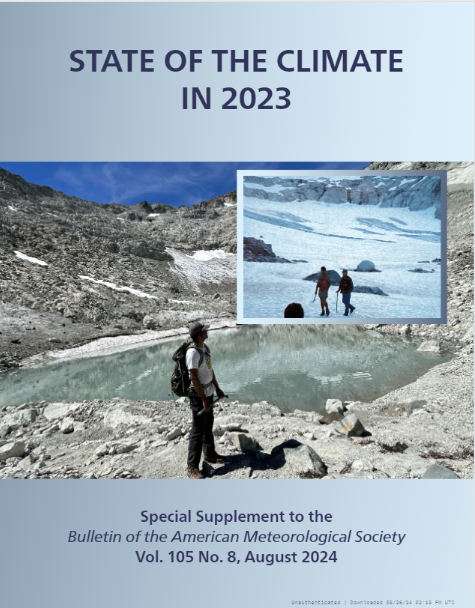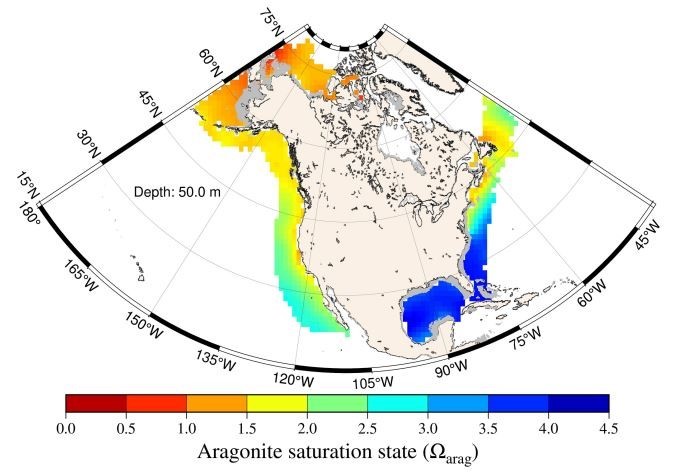
Record High Temperatures in the Ocean in 2024
Figure. Regionally observed upper-2000-m change from 1958 through 2024 relative to a 1981–2010 baseline using Institute of Atmospheric Physics/Chinese Academy of Sciences data. Of the

Figure. Regionally observed upper-2000-m change from 1958 through 2024 relative to a 1981–2010 baseline using Institute of Atmospheric Physics/Chinese Academy of Sciences data. Of the

Figure: Satellite-based temperature indicators for 84 estuaries across the United States are available from the NOAA CoastWatch Data Portal. Displayed is monthly mean sea surface

On October 6, 2024, Dr. Liqing Jiang presented “A Changing Ocean Under Climate Change Background” to students at Howard College Community College. The audience, including

This week, the American Meteorological Society (AMS) released its annual State of the Climate report in 2023. Compiled by NOAA’s National Centers for Environmental Information,
![Figure. Example of a mapped data product: seasonal means of dissolved inorganic carbon [CT(RFR-LME)] in the Northern Hemisphere (a) winter (December-January-February), (b) spring (March-April-May), (c) summer (June-July-August), and (d) fall (September-October-November) over the period 1998–2022 within each U.S. LME.](https://essic.umd.edu/wp-content/uploads/2024/08/jiang-1.jpg)
(Click to enlarge) Comparisons between pCO2 from selected moored buoy observations, RFR-LME and RFR-LME-NM maps, and other mapped surface products. (a) Mapped long-term mean pCO2(RFR-LME)

Figure. Example of a map of one of the OA indicators, namely, the aragonite saturation state at a depth of 50 m on the North

ESSIC scientists Li-Qing Jiang, Paige Lavin, and Hyelim Yoo are a part of a team of scientists that have developed detailed maps that track ocean acidification indicators from 1998 to 2022 for eleven large marine ecosystems (LMEs) in the U.S. The study was just published in Nature – Scientific Data for this work.

Last month, Alexey Mishonov participated in the International Conference on Marine Data and Information Systems (IMDIS24), held in Bergen, Norway.

ESSIC/CISESS Scientist Liqing Jiang recently hosted the first International Workshop to Advance Ocean Carbon and Acidification Data Management and Interoperability in Venice, Italy on May 7-8 2024.

The global ocean has been heating up for decades, with records from the 1960s reporting a substantial rise in upper ocean heat content. Rising ocean temperatures also affect ocean currents, though there has yet to be a consensus on the strength or extent of those changes, or whether these changes will continue in the future. However, a new paper led by Earth System Science Interdisciplinary Center (ESSIC) scientist Alexey Mishonov documents, for the first time, a significant slowing of the Atlantic Meridional Overturning Circulation (AMOC), a crucial ocean current system that plays a vital role in regulating Earth’s climate.